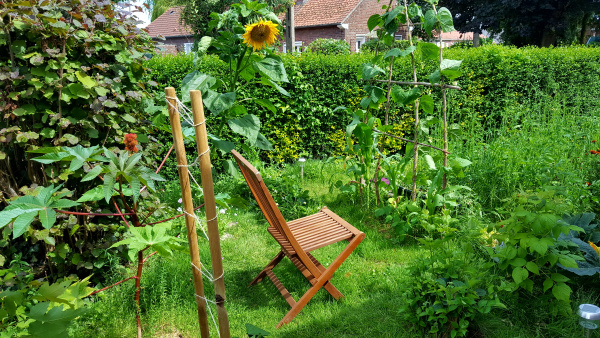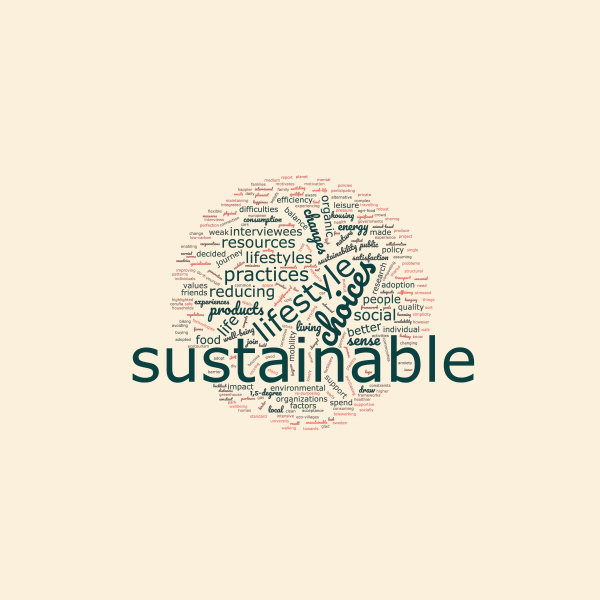
Living a sustainable life is not a walk in the park. It is a complex process for governments, organisations and individuals alike and has many ups and downs. It is sometimes hard to know exactly which of our choices are truly sustainable. Also, we often face difficulties when trying to adopt a sustainable way of life. Some people experience such changes more actively with such changes and we can learn a lot from them: what motivates their choices, the constraints but also the enabling factors they encounter in their journey, the resources they draw upon and how the adoption of sustainable lifestyle choices impact upon their well-being and life satisfaction.
This is exactly what we decided to do in the EU 1.5° Lifestyles research project. In collaboration with partners in 5 European countries (Germany, Hungary, Latvia, Spain and Sweden), our research team of psychologists and economists at the Sustainability Specialization Centre of the University of A Coruña, carried out 38 in-depth interviews with people who have integrated sustainable lifestyle choices in their daily lives, in at least two areas of everyday consumption, such as mobility, food, housing or leisure. To make sure we learn from those who have made significant changes, we also made sure that the people we interviewed incorporated these changes at least two years ago, and that the choices that qualified as sustainable were those that have a medium or high impact on reducing greenhouse gas emissions.
Some exciting patterns emerged from the data we analysed. The most common sustainable agri-food practices adopted tend to be about reducing animal-based food products, consuming more local, seasonal and organic products, as well as avoiding single-use plastics when purchasing food. Sustainable mobility practices are mostly based on reducing travelling distances e.g., teleworking or moving closer to work, reducing the use of private cars and opting for more sustainable options such as public transport, car sharing, biking and walking. Sustainable housing practices are mostly related to home recycling e.g., sorting waste, composting to produce organic fertilisers, repurposing products through do-it-yourself (DIY) practices, as well as improving energy efficiency and clean energy generation. Sustainable leisure practices are mostly related to activities that are not based on intensive resource consumption but rather more focusing on quality time experiences and ecotourism.
What about you? Are you an individual who has decided to change your lifestyle to a more sustainable one and is looking for some resources to build your own path for a 1.5-degree lifestyle? Or are you experiencing some social backlash as a result of your lifestyle choices? Either way, you are not alone in this. Switching to a 1.5-degree lifestyle not only protects our planet but also improves our overall well-being including our physical and mental health. Our interviewees highlight their sense of satisfaction with living a conscious lifestyle based on simplicity which is compatible with their own values and beliefs. It brought them a sense of well-being, with a better work-life balance where they can spend quality time with family and friends, can spend more time in nature, eat, sleep and exercise better, and thus feel healthier and happier.
However, there are some difficulties on this path. One feels lonely sometimes since sustainability-related values and lifestyles are not always in line with the prevailing social norms and participating in social life while maintaining one's choices is not always straightforward. Sometimes one also experiences inner conflict as changing some of our unsustainable choices is not always easy or pleasant. Becoming more aware of environmental problems also leads to a sense of anxiety, and finding a sense of balance and hope is not always easy.

There are also other structural factors that hinder individual lifestyle changes. Accordingly, the higher cost of sustainable products and the lack of an adequate policy framework and regulations for the adoption of low-carbon measures, for example, weak public policies to support organic and local farms to be able to compete against big corporations. The weak availability of advanced technologies for households is considered an important barrier to increasing the energy efficiency of homes. There is thus a need for more robust policy frameworks that would support sustainable choices.
Meanwhile, the ones who dare to stand out from the crowd and start on this beautiful path find other resources to draw on. They join sustainable communities such as eco-villages, where they find a safe space to strive towards shared goals. They join environmental organisations or movements where they find resources to learn more and to mobilise better. Also, our interviewees report that things have changed socially, that there is now greater social acceptance of sustainable and alternative lifestyles, and friends and families have become more supportive. They highlight the importance of also being flexible, and assuming a good enough standard, instead of one of perfection, as a way to stay motivated on this journey. And last but not least, the majority of interviewees highlighted that they are glad to follow sufficiency lifestyles since this sort of living improves their connection with nature rather than being stressed by the pressure of constant buying in pursuit of happiness.
Adina Claudia Dumitru, Luisa Losada Puente & Nadin Ozcelik, University of A Coruña

